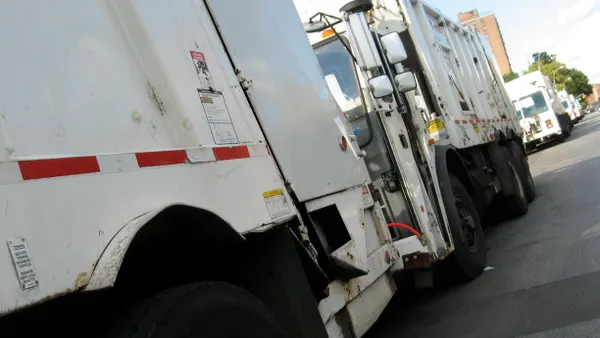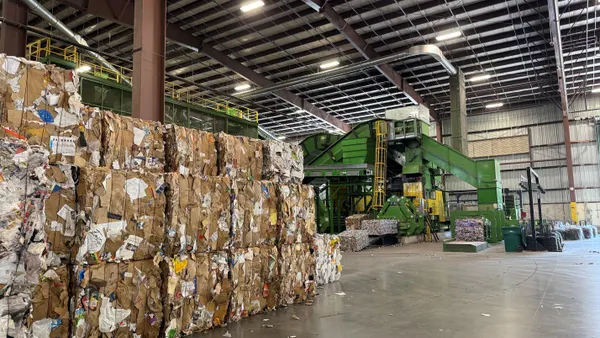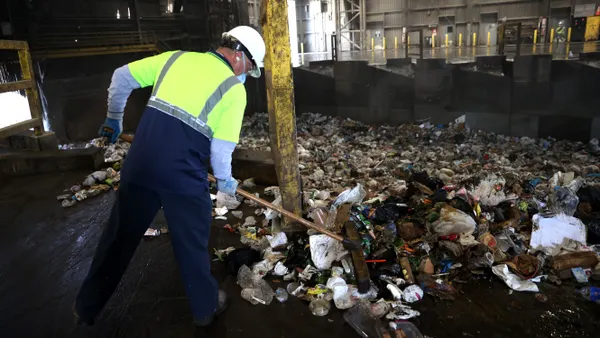Dive Brief:
- Omaha, NE's plans to resume separate yard waste collection this week have been delayed, and residential material in multiple neighborhoods is still being co-collected for landfill disposal, as reported by the Omaha World-Herald.
- Waste Management recently announced plans to add 20 yard waste routes citywide this year, bringing the total to 80, but said the ongoing driver shortage has slowed its efforts. The company also cited Omaha's current unlimited yard waste policy as a time-consuming factor for current drivers and helpers.
- Omaha has given Waste Management a temporary exemption from current contract terms that require separate yard waste collection and has considered the possibility of permanent co-collection. Though until the company's current contract expires in 2020 city officials have said they expect the service to be provided.
Dive Insight:
Omaha's yard waste discussion has been a long and complex one, starting about two years ago when collection efficiency started to fall behind. A recent study commissioned by the city found that co-collection of yard waste could be less expensive and more sustainable when truck miles were factored in. Public sentiment has trended against that concept in surveys. If Omaha did revert back to landfilling yard waste, that would preclude it from expanding into food scrap co-collection like other municipalities have done, though that level of organics diversion isn't currently a priority for the city.
Staffing separate routes became a more pressing issue following Waste Management's acquisition of Deffenbaugh Industries, which has been particularly affected by the driver shortage. While the city has been sympathetic to Waste Management's driver shortage challenges that may only go so far. In an April press release Mayor Jean Stothert said she expected Waste Management to provide separate and unlimited yard waste collection for residents, "regardless of volume especially in the spring and early summer." This summer the city will be holding multiple public meetings to discuss broader changes to its waste system, including automated collection and larger carts, so the issue can be expected to come up again.
Waste Management is far from the only company affected by ongoing hiring challenges for CDL drivers and no easy solution is available. Federal legislation aimed at making the transition easier for veterans has been a recent priority for the industry. Estimates of the true shortage range widely and recent developments in driverless vehicles have led some to speculate that a decrease in available jobs could play a role in reducing this gap.












